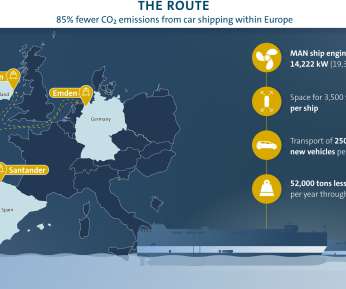Volkswagen fueling car carriers with fuel derived from used cooking oil; GoodFuels BFO
Green Car Congress
NOVEMBER 27, 2020
With 85 percent lower CO 2 emissions than with conventional fossil fuels, the contribution to climate protection is enormous. In the course of their journeys, they carry about 250,000 new vehicles of the Audi, SEAT, ŠKODA, Volkswagen Passenger Cars and Volkswagen Commercial Vehicles brands every year.













Let's personalize your content